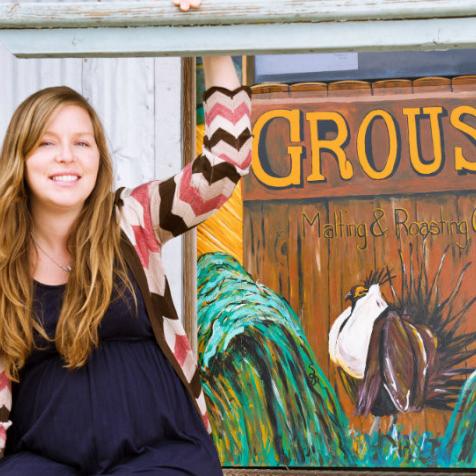
Company Details
Location
Wellington, Colorado
Founded
2013
Ownership Type
Private
Employees
6
Products
Malt products for brewing
Maltstress and CEO Twila Henley is guiding her gluten-free malt provider to exponential growth that takes advantage of Colorado's U.S.-leading millet crop.
Henley moved to Fort Collins in 2010 to pursue a graduate degree in food science, but a brewing science and technology lit her entrepreneurial fuse.
A classmate was skipping the tastings during tours of local breweries. Henley learned she wasn't drinking because she had celiac disease -- along with one out of every 100 people in the U.S. The disease makes gluten in wheat and barley a big no-no.
"I was struck by her dedication in avoiding gluten and missing out on some really good beer," says Henley, who asked her about gluten-free beer. "She said it didn't taste very good."

After confirming that herself, she Googled "gluten-free grains" and found nothing. The gluten-free beers on the market largely used rice and sorghum syrup instead of grains, she learned that millet was naturally gluten-free. She bought some millet from Golden Prairie Organic in Nunn, Colorado, and worked with a homebrewer friend to make a beer that "tasted a lot better."
Henley initially thought about starting a gluten-free brewery, but the lack of suppliers got her into the gluten-free malting business instead. One of seven people have some level of gluten intolerance, she notes -- including herself: She says she "benefitted greatly" from a gluten-free diet after her diagnosis around the same time she launched Grouse.
The company's location is ideal: Colorado is the top millet state in the U.S., with over 300,000 acres planted in 2013. That's almost 60 percent of the total acreage in the entire country.
It's categorized as birdseed, but the market is changing as production increases in tandem with gluten-free awareness locally and nationally. "It's being used more and more for human consumption," says Henley. It's increasingly appearing in cereal and granola bars, and millet flour is a gluten-free staple.

Early on, Henley won an entrepreneurial contest for her Grouse plan at University of Northern Colorado. "It gave us some startup money to catapult into production," she says. Next the company landed an investment from Boulder-based Slingshot Capital Partners.
Grouse's first sale came in summer in 2013 and the company now sources millet, buckwheat, and other gluten-free grains from about 10 local farms. Volume has tripled since the launch, and Henley projects 200 percent growth in 2015.
The operation is based in a grain elevator that was built in 1922 but abandoned for 15 years before Grouse moved its operations to the site in September 2013. "Quite a bit of elbow grease was needed," Henley says of the site's cleanup.
Challenges: "There's not craft malting equipment that's readily available on the market," says Henley. She says she expects that to change, but Grouse has been tweaking dairy and fermentation tanks to handle smaller kernels -- which means denser grain, which in turn means less air flow and different water requirements. "We've made all of our equipment in-house," says Henley. For roasting, "We repurposed a coffee roaster, so our customers can make the whole gamut of beers."
Another challenge is balancing production capacity with sourcing and sales, she adds.
Opportunities: A national market. "We ship coast to coast," she says. "That's different than most craft malting companies." Craft maltsters use grain that's more than half locally grown and usually sell locally as well, but Grouse's customers include Ghostfish Brewing in Seattle, Rockmilll Brewery in Ohio, and New Belgium in Colorado.
Needs: More malting equipment and "a good harvest," says Henley. "The farmers are loving this moisture."

